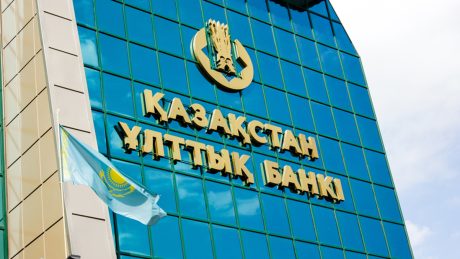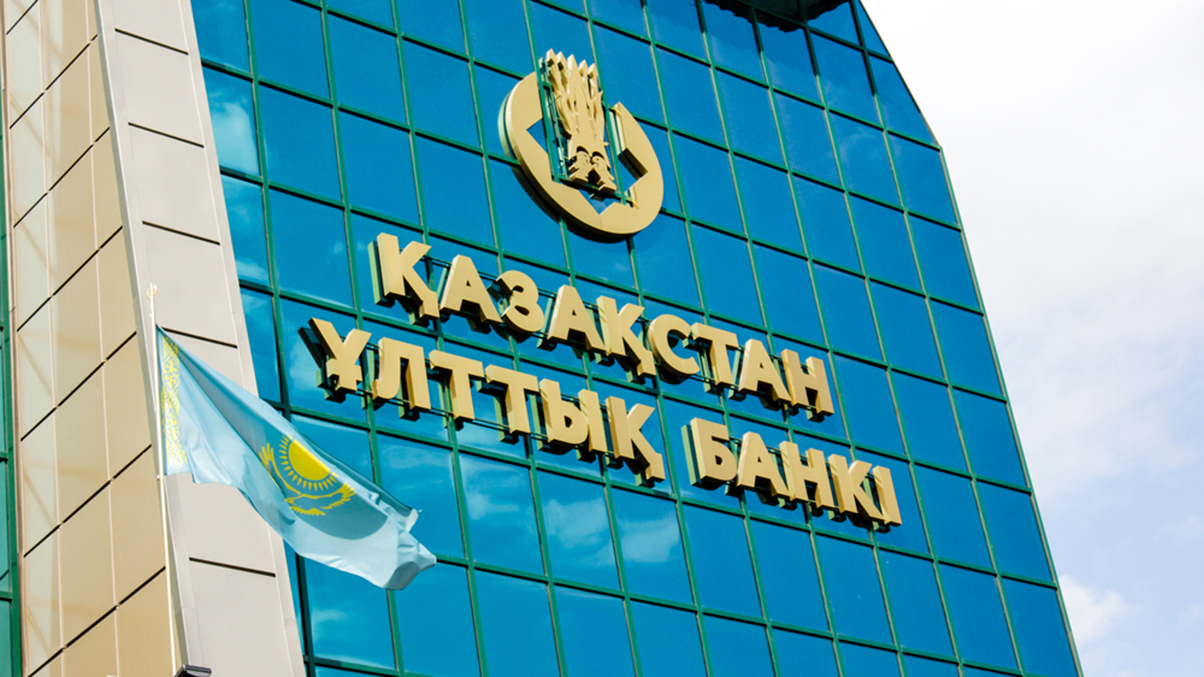In a judgment handed down on 11 March, Master Rowley has dismissed an application brought by the second to fifth Defendants (the “Stati parties”) to set-aside a Default Costs Certificate obtained by The National Bank of Kazakhstan and The Republic of Kazakhstan (“NBK” and “RoK”). Joseph Dowley outlines the decision here.
Background
Following the conclusion of the first fully virtual trial in the Commercial Court, Mr Justice Teare handed down judgment on 22 April 2020 granting declaratory relief confirming that the US$530m of cash deposits held by the Bank of New York Mellon under a global custody agreement were owed to NBK and not, as contended by the Stati parties, to RoK. More information about the background to this case can be found here.
Mr Justice Teare made a consequential order on 4 May 2020 that included provision for the Stati parties to pay NBK and ROK’s costs of the action, to be assessed if not agreed. A previous order for costs in favour of NBK and RoK had also been made by Mr Justice Teare following an unsuccessful application by the Stati parties to challenge the jurisdiction of the English Court in November 2018.
On behalf of NBK and ROK, Stewarts commenced detailed assessment proceedings (the formal procedure which culminates in a costs judge conducting an assessment legal fees that are payable pursuant to a court order) on 15 December 2020 indicating that the objections (referred to as points of dispute) to the bill of costs, if any, were due to be served by 5 January 2021. The bill of costs totalled US$3,730,094.91. No response was received, and on 6 January 2021 Stewarts applied for a default costs certificate (an order giving judgment in default for the full amount of costs claimed plus the costs of the application). This was duly issued by the court and served later that day.
On 7 January 2021, King & Spalding International LLP, solicitors for the Stati parties, wrote to Stewarts in robust terms complaining that NBK and RoK were not entitled to the default costs certificate. In any event, they said, the conduct of NBK and RoK was “disingenuous” in not providing the Stati parties with a chance to respond to the bill of costs that had been served. NBK and RoK declined the offer to set the default costs certificate aside voluntarily.
The Application
The Stati parties’ set-aside application was filed on 15 January 2021. In support, King & Spalding, provided two witness statements containing explanations for the failure to serve points of dispute by 5 January 2021 or to seek an extension of time for doing so. The statements set out the steps that had been and were being taken by King & Spalding to prepare points of dispute retrospectively. Perhaps rather surprisingly given the date on which the points of dispute were due to be served, it was noted that external costs lawyers were not instructed until 19 January 2021 to assist with the preparation of points of dispute. It then took a further 16 days for them to be provided with a copy of the entire electronic dataset/file in the required format. It was said that the reason for the delay in providing the electronic file was to do with the need to seek and obtain certain internal approvals in light of the firm’s data privacy protection policies and procedures.
The hearing
Prior to the hearing of the application, the Stati parties withdrew their unfounded assertion that NBK and RoK were not entitled to obtain a default costs certificate and that it should be set aside as of right. . Consequently, Master Rowley decided the application only with reference to CPR 47.12(2) which provides that “the court may set aside or vary a default costs certificate if it appears to the court that there is some good reason why the detailed assessment proceedings should continue”.
Adopting a similar approach to Master Leonard in his recent decision to refuse to set aside a default costs certificate in Masten v London Britannia Hotel Ltd [2020] EWHC B31 (Costs), Master Rowley considered whether the Court of Appeal’s guidance and three-stage test in Denton v TH White Ltd [2014] EWCA Civ 906 adds to the test in CPR 47.12(2). The three-stage test in Denton required the court to: identify and assess the seriousness and significance of the non-compliance, consider why the breach occurred and evaluate all circumstances of the case so that application is dealt with fairly. While noting that there had been no authoritative decision on this point, Master Rowley concluded that the Denton test “provides some structure in coming to a conclusion as to whether a good reason has been demonstrated”. In applying the first and second stages of the Denton test, Master Rowley concluded that:
- the failure to comply with the time limit for serving points of dispute is a serious breach of the rules that has a significant consequence on the paying party who is, absent relief, prevented from taking any further steps to challenge the receiving party’s bill of costs; and
- there was no good explanation provided for the breach and that oversight cannot be a good reason. It was not a good reason for a professional person (in this case the partner with conduct at King & Spalding), to overlook something required by the rules to be completed in a specific period of time.
In considering the third and final stage of the Denton test ie whether it is just in all the circumstances to exercise the court’s discretion in favour of the Stati parties, counsel for the Stati parties’ primary submissions were (in summary) that:
- the size of the bill meant that in the usual course of detailed assessment, they could expect to reduce by US$1.2m;
- it was reasonable for the application to be made without draft points of dispute given the size of the bill and the time required to draft them and that there was no separate obligation on the Stati parties to produce them for the court before the application was heard;
- NBK and RoK would not face any prejudice if the certificate was set aside and refusing to do so would create a windfall for them.
NBK and RoK’s response to these points was that it was not enough for a defaulting party to simply say that the bill was too high. There was no good reason why the Stati parties had not appended draft points of dispute to their application or provided them in advance of the hearing.
In deciding the application, Master Rowley noted that the onus of the application to set aside was on the Stati parties to demonstrate a good reason why the detailed assessment should continue. He also considered the overriding objective of enabling the court to deal with cases justly and at proportionate cost and noted that it cannot be the case that applications will be granted as little more than a rubberstamping exercise. There was a requirement to demonstrate that further court resources should be made available in the future, if required, for a full detailed assessment hearing.
The master went on to consider the impact of the Stati parties’ failure to produce draft points of dispute before the hearing as they are required to in accordance with the general rule at Practice Direction 47 paragraph 11.2. The explanation provided for the delays such as the need to comply with firm’s data policies and procedures was “not an impressive explanation at all”. Despite submissions from the Stati parties to the contrary, Master Rowley found that compliance with paragraph 11.2 was not time limited to having to prepare points of dispute to accompany the set aside application. He confirmed that paragraph 11.2 is largely aimed at the court hearing the application.
Where compliance with paragraph 11.2 cannot take place at the time an application is made, draft points of dispute should be provided in time for the hearing. Alternatively Master Rowley would have considered “a witness statement from Mr Vickery [the costs lawyer with conduct at Overtons Costs Consultants] or even some other document produced by him, to give an indication of the nature of the points he was expecting to take”. Master Rowley noted that “the need for points of dispute, in some shape or form, is fundamental to the prospects of setting aside the default costs certificate in most cases”.
Master Rowley was, therefore, left without any sense of what purpose a full detailed assessment hearing would serve, save for trite points that at any detailed assessment some costs are likely to be reduced. In his concluding remarks, Master Rowley noted: “The Stati parties have failed to act with sufficient promptness so as to be able to set out any putative case in the detail expected at the hearing of such applications and, upon analysis, such actions as have been taken do not weigh sufficiently in the balance to grant relief in the circumstances.”
Concluding remarks
Given the requirement for the Stati parties to demonstrate to the court that there is some good reason(s) why the detailed assessment proceedings should have continued, the dismissal of the application is perhaps unsurprising.
However, the decision illustrates the importance of a defaulting party acting promptly even after the default has occurred and the application for relief has been made. It is not enough for a defaulting party to submit that a bill of costs (regardless of the amount claimed) will be reduced on detailed assessment. Indeed, if this submission were correct the issuing of default costs certificates would be futile and inevitably almost always be set aside.
National Bank of Kazakhstan & Another v The Bank of New York Mellon & Ors
In mid-March 2020, as lockdown restrictions were first introduced in the UK, Stewarts was involved in the first fully virtual trial in the UK Commercial Court. On 19 March 2020, the trial of National Bank of Kazakhstan & Another v The Bank of New York Mellon & Ors was given permission to proceed virtually. A coordinated effort between parties, led by Fiona Gillett, Aleks Valkov, Joe Mitchell and Ian Gatt QC led to the trial going ahead on 26 March 2020. The trial involved participants from England, Belgium, Kazakhstan and the United States. Judgment was also delivered remotely, on 22 April 2020.
Read more about this trial here, and the judgment here. A webinar on the lessons learned from this trial can be viewed here.
You can find further information regarding our expertise, experience and team on our Commercial Litigation pages.
If you require assistance from our team, please contact us or alternatively request a call back from one of our lawyers by submitting this form.
Subscribe – In order to receive our news straight to your inbox, subscribe here. Our newsletters are sent no more than once a month.








